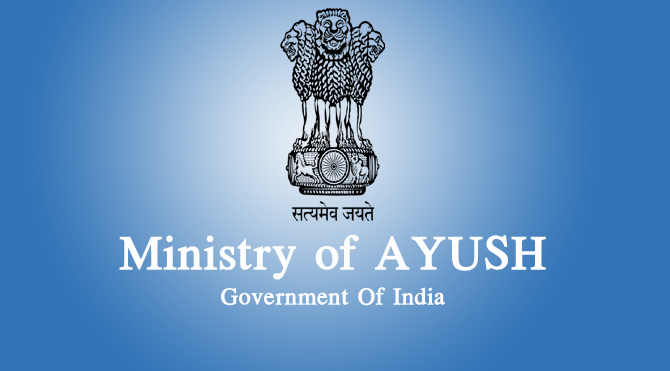
 The Advanced Sterilization Products (ASP) division of Johnson & Johnson is pioneer in the area of preventing Hospital Acquired Infections (HAIs). Sankara Sarma, Director, ASP in an interaction with ENNs Ekta Srivastava explains why this approach is better at fighting HAIs
The Advanced Sterilization Products (ASP) division of Johnson & Johnson is pioneer in the area of preventing Hospital Acquired Infections (HAIs). Sankara Sarma, Director, ASP in an interaction with ENNs Ekta Srivastava explains why this approach is better at fighting HAIs
Is infection control a bigger issue than it used to be? Why?

To start with, we believe that infection prevention is a better approach than infection control. Having said that, Hospital Acquired Infections (HAI) is getting higher visibility for a variety of reasons in India as well “ firstly, we are getting to see some Indian publications on HAI rates. These rates are both very high and at the same time there is a high variability across various healthcare settings. Secondly, hospitals are focusing on preventing HAIs in order to improve patient outcomes and reduce the length of patient stay at the hospital. This is particularly important given the disturbing trend of heightened antibiotic resistance and new Multi-drug resistant organisms. Consequently, there is a lot of interest among healthcare providers for hospital accreditations either NABH or JCI, where there is a lot of importance given to infection prevention processes and metrics. Lastly, with awareness levels going up generally, there is an increased sensitivity across the board to certainly prevent the infections that are preventable.
Infection Control today has emerged as the major concern in the hospitals. What special measures are you taking to control the spread of infections?
ASP (Advanced Sterilization Products) division of J&J has been a pioneer in the area of offering infection prevention products, technologies and solutions. We are focused on critical areas which are prone to high infections such as OR, ICU (including transplant areas, dialysis units, etc), CSSD and Endoscopy. We collaborate with the healthcare providers with customized solutions to benchmark with the standards, improve the pro- cesses, impart trainings and implement tools, etc. This is a knowledge based approach on top of the world class products and technologies. This Care Area based approach is guiding us to assist hospitals in a focused manner by customizing the solutions. To this end, we have invested in trained infection prevention specialists in our organization.

How did that affect the way you approached patient safety?
It is easy to see the connection between infection prevention and patient safety and hence the quality of outcomes. At Johnson and Johnson, our aspiration is by caring, one person at a time, we help billions of people around the world live longer, healthier and happier lives. By working with the hospital providers in the four care areas mentioned above, we believe that we are assisting the hospitals in improving the patient safety and living our aspiration.
What are the major challenges that you have faced?
Some significant hurdles include lack of regulations to monitor patient safety, scarcity of dedicated infection prevention specialists such as Infection Control Nurses and Infection Control Officers, insufficient budgets and investments around infection prevention. Many of these hurdles are resolved in other countries where the infections rates are lower than one to two percent, where as in India the published reports show the infections at five percent to twenty five percent and more.
Even after booming technology and luxurious facility provided by the multi-specialty hospitals, HAI has emerged as one of the main reason for patients death in hospitals. Where do you think is the main loophole in the management?
It is true that hospital acquired infections is one of the top contributors of deaths even in western countries. Given that critical surgeries and inpatient admissions are growing at high double digits, if the protocols and processes do not keep pace, one could imagine the adverse impact of infections. Infection prevention is a strategically important subject that requires dedicated and priority in- vestments since this impacts patient safety and quality of patient outcomes across the care areas in a hospital. There are publications that show that infection prevention reduces average length of stay. Some of the other benefits include improvements in the operational metrics such as OR utilization, inventory management, etc.
“Infection prevention is a strategically important subject that requires dedicated and priority investments since this impacts patient safety and quality of patient outcomes across the care areas in a hospital“
What is being done by regulators at the state and national level to address infection control?
Healthcare has started getting attention recently, even though a lot needs to be done. On the infection front, the government has recently released a working paper on sterilization. NABH has been a front runner in hospital quality and the accreditation is finding a lot of takers. Accreditation becoming a requirement for empanelment with Insurers is also a key step.
What role do (or should) patients play? Is it reasonable to expect patients to ask their caregivers to wash hands?
Absolutely, patients need to take responsibility. My mother recently had a knee replacement surgery and one of the criteria I used to select the care giver is whether the hospital has any quality accreditations. Accreditations assure that there are protocols and monitoring in place. In countries like Australia, hospitals display infection rates and in the USA, there are penalties for hospital acquired infections.
Be a part of Elets Collaborative Initiatives. Join Us for Upcoming Events and explore business opportunities. Like us on Facebook , connect with us on LinkedIn and follow us on Twitter , Instagram.













